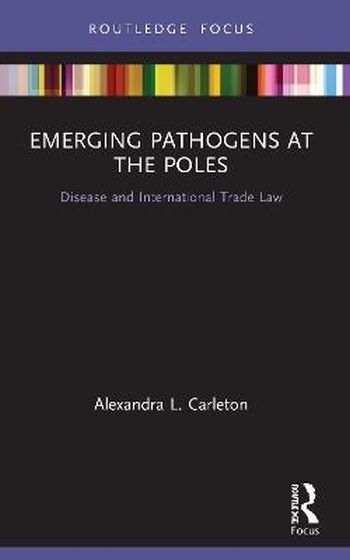
Emerging Pathogens at the Poles: Disease and International Trade Law explores the applicability and possible complicating issues of the SPS Protocol to the Polar Regions in light of emerging pathogeneses and unknown host and environmental susceptibility and resilience.
It examines the current literature on emerging pathogeneses in the Arctic and Antarctic and the relationship pathogeneses has with human development and movement of goods and people in spreading pathogens in the Polar Regions. Given the endemic nature of the Polar environment and the increasing interest in these regions for tourism and industry, this topic is important to address. The major component of the work is on the relevance of the SPS Protocol and the GATT 1994 Article XX(b) exception on human, animal and plant health as a barrier to trade which is examined in the context of its application to the Arctic and Antarctic. This book is an introduction to the interdisciplinary thinking required, across both science and law, in order to appreciate the significance of global trade barriers in reducing disease transmission and spread.
The spread of pathogens across boundaries has become an important geopolitical issue and the provisions of international trade law may prove decisive in limiting or exacerbating the spread of disease. Academics and students with initial knowledge of the international trade regime, or those with initial studies in health or Polar medicine, will find this cross-over a useful introduction to the complications of food, trade and disease.